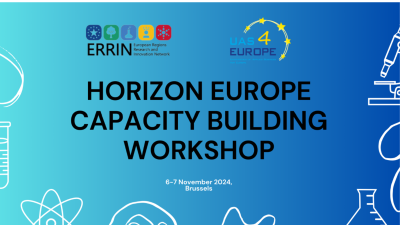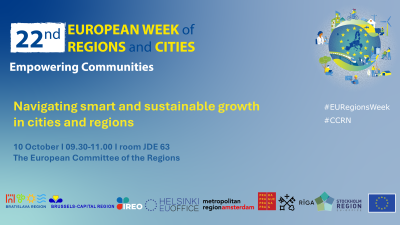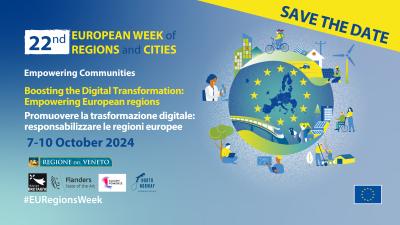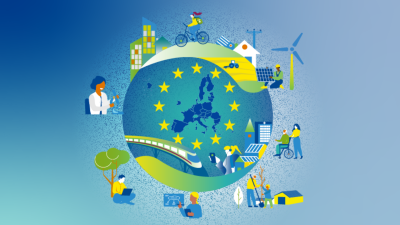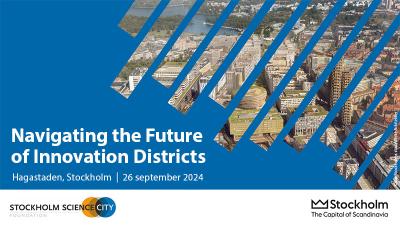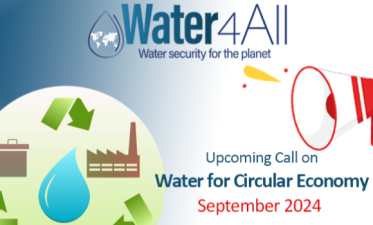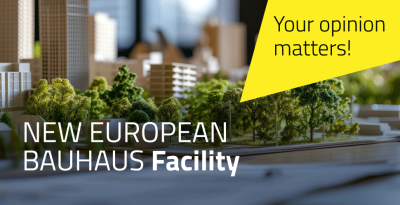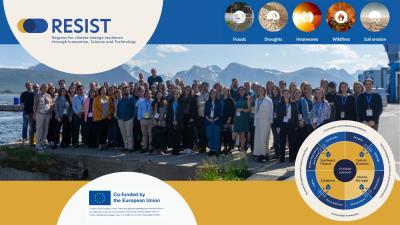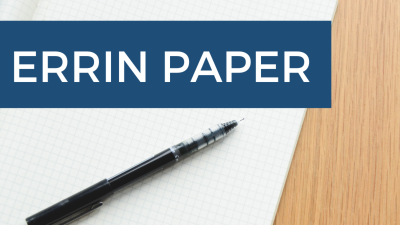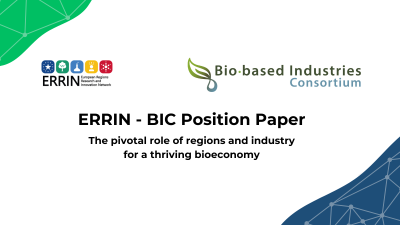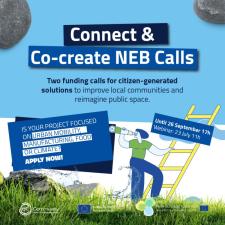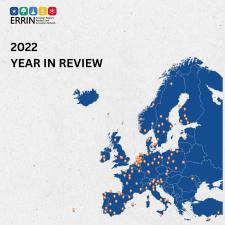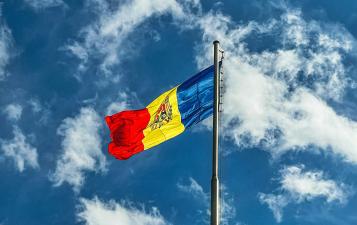Task Force Leaders
Representatives of Brussels-based offices leading the work of the Climate Adaptation Taskforce.
EU Mission on Adaptation to Climate Change
The Climate Adaptation Task Force builds on previous ERRIN's work around the EU Mission on Adaptation. ERRIN has followed the Mission closely and contributed to its shaping and implementation through the development of input papers, organisation of events and discussions with the Mission Secretariat. ERRIN became a Friend of the Mission in 2022, alongside 130 of its member cities and regions, and provided input on the Mission Charter
Adaptation Task Force
The Climate Adaptation Task Force drives and structures ERRIN's work on Mission Adaptation - building on ERRIN’s previous activities whilst engaging members in current opportunities and activities under the Mission. Further, the Task Force supports in steering the work of ERRIN's Mission Adaptation projects, while also addressing topics relevant to the local and regional implementation of the Mission.
ERRIN Contact
Future Related ERRIN Working Group Meetings
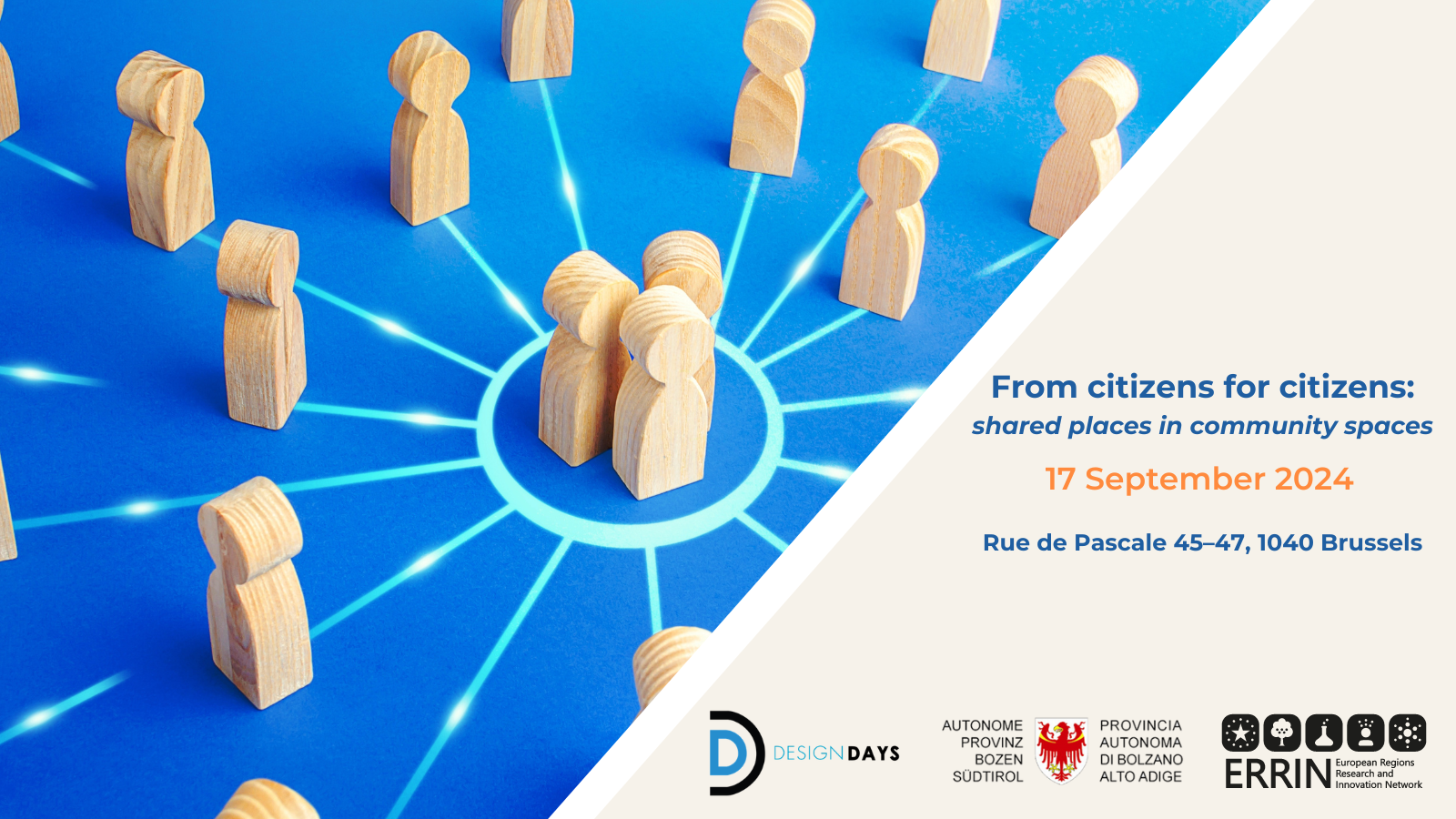
EU Design Day 2024
The 12th edition of EU Design Day will happen in Brussels on 17 September 2024, gathering key stakeholders from the design and creativity sectors for a networking opportunity with familiar and new
Previous Related ERRIN Working Group Meetings

Mission Soil: lessons learned and upcoming opportunities
ERRIN Bioeconomy WG is organising an in-person meeting on 10 June 2024 from 15:00 to 17:00 to take stock of the latest developments on the Soil Mission. This meeting aims to facilitate an in-

Policy & Smart Specialisation WGs meeting: Widening in FP10 and impact on cohesion policy post-2027
The topic of widening gathers high attention in the discussions around the next European Framework Programme for R&I, raising questions with the potential to influence not only the Widening sub-
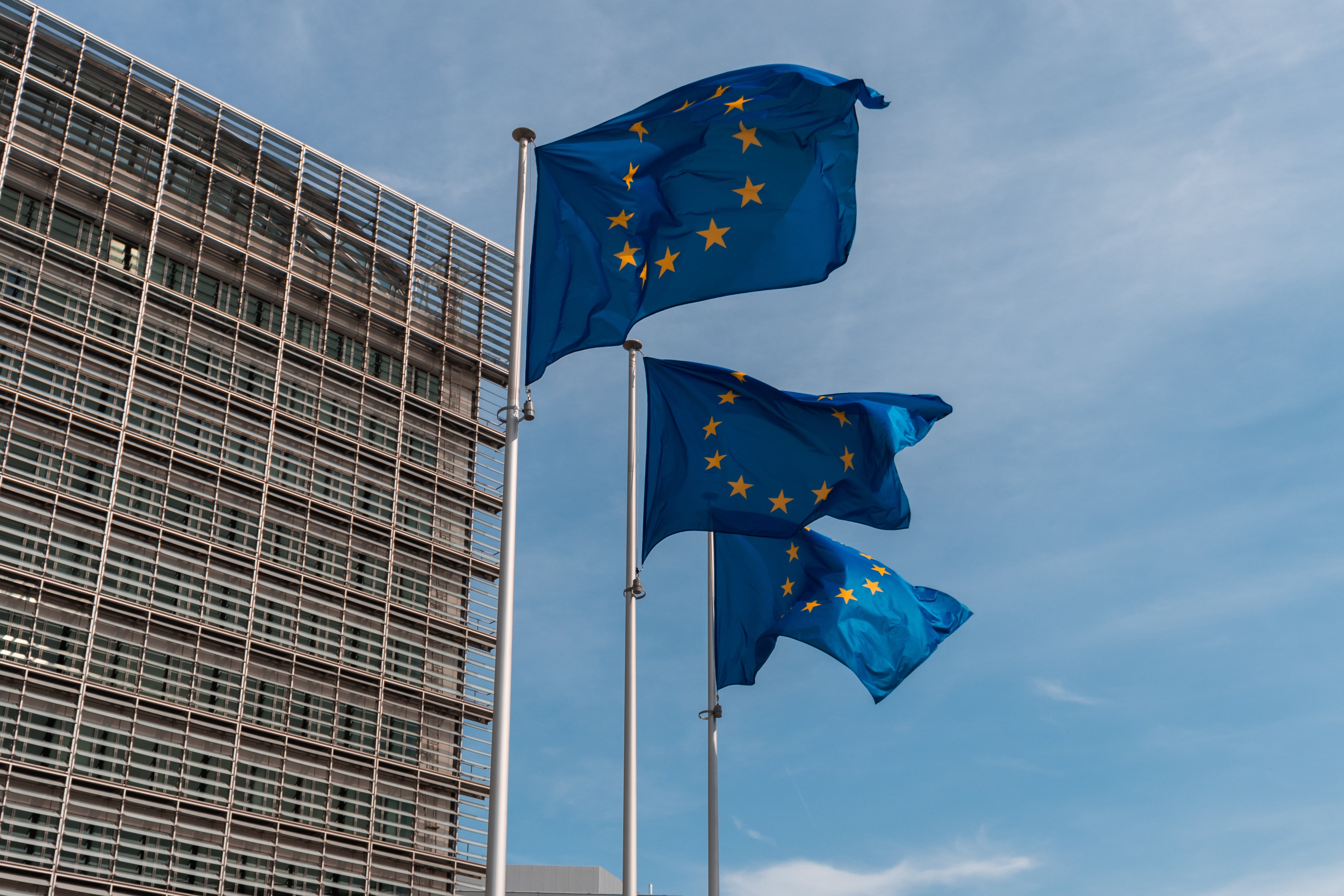
Policy WG meeting: Role of EU Missions in FP10
ERRIN has been closely involved in the design and implementation of the EU Missions since their inception. Missions remain one of the network's priorities and were one of the four main areas of focus
WG Related Events
UAS4EUROPE and ERRIN Horizon Europe Proposal Workshop
ERRIN and UAS4EUROPE are co-organising a Horizon Europe Proposal Workshop on 6-7 November 2024 in Brussels. This capacity building workshop will be a great opportunity for participants to unlock the potential of Horizon Europe’s Pillar 2.
EURegionsWeek political workshop: Navigating smart and sustainable growth in cities and regions
Are you interested in learning more about how cities and regions navigate smart and sustainable growth? Join the Capital Cities and Regions Network (CCRN) during the European Week of Regions and Cities 2024. The event will take place in Brussels on 10 October, 09:30 - 11:00.
How knowledge ecosystems can enhance a sustainable and eco-friendly development of European regions
This session held on 9 October 2024 from 11:30-12:30 in person in Brussels in the frame of the European Week of Regions and Cities 2024 will explore how place-based innovation and knowledge ecosystems can give a specific priority and effectively contribute to the goal of environmental sustainability and the green transition in European regions. ERRIN's Director Pirita Lindholm will join the event as speaker.
European Week of Regions and Cities 2024 Workshop "Boosting the Digital Transformation: Empowering European regions"
During the workshop on: "Boosting the Digital Transformation: Empowering European regions", speakers will delve into Europe's digital transition under the regional perspective. Exploring strategies, challenges and success stories, the aim is to equip participants with the insights and tools necessary to steer their transformative journeys. From fostering digital skills to leveraging emerging technologies, the discussion will revolve around how regions can capitalise on digital opportunities while addressing socio-economic disparities.
European Week of Regions and Cities
The 2024 edition of the European Week of Regions and Cities is taking place from 7-10 October in Brussels. Under the motto "Empowering Regions" - thousands of local and regional administrations and authorities, EU institutions, young politicians, academics, NGOs and private sector representatives will gather in Brussels to share knowledge, experiences and ideas on how to bring forward practical and territorial aspects linked to the Cohesion Policy.
Stockholm’s Innovation District Summit: Navigating the Future of Innovation Districts
Stockholm Science City Foundation and the Stockholm Business Region are organising a summit on Innovation Districts. The symposium will explore how regions and cities can work in new ways with innovation districts over the next decade to strengthen economic development and attractiveness. The event will take place in Sweden on 26 September, 08:30 - 16:30.
Pagination
WG Related Content
Water4All Partnership 2024 Call Pre-Announcement: Water for Circular Economy
The Horizon Europe co-funded partnership ‘Water4All’ has pre-announced the opening of the Joint Transnational Call for research and innovation projects on ‘Water for Circular Economy’ on 12 September 2024.
Have your say on the New European Bauhaus Facility
The NEB Facility is a unique, multi-annual EU funding tool that aims to transform neighbourhoods through design for sustainability and inclusion. The European Commission is now inviting all interested parties to contribute to the consultation on defining the content of the New European Bauhaus Facility.
A year and a half of building resilience together – RESIST project wrapped
The RESIST project, aimed at enhancing climate resilience across twelve EU regions, has made significant progress over the past year and a half. Four frontrunner regions are leading the way in testing climate adaptation solutions, paired with regions facing similar challenges. Key achievements include boosting regional ecosystems, developing a needs assessment methodology, creating a transfer methodology for innovations, building digital twins for climate scenario modelling, compiling a repository of climate adaptation practices, producing a series of project videos, and launching "The Stitch…
ERRIN Paper Series: Towards the 10th Framework Programme - EU Missions
ERRIN is pleased to launch a series of input papers on the 10th Framework Programme, with this paper focusing on EU Missions. ERRIN has been closely involved in the design and implementation of the EU Missions since their inception, making them a priority for the network. This input paper on the role of EU Missions in FP10 has been created with contributions from ERRIN members and their ecosystems.
The pivotal role of regions and industry for a thriving bioeconomy: ERRIN - BIC joint position paper
ERRIN, through its Bioeconomy WG, and the Bio-based Industries Consortium (BIC) have jointly released a position paper outlining a proposal for the most pressing actions for the European bioeconomy to be tackled during the upcoming European Commission mandate period.
Two new NEB funding opportunities are open
The EIT Community New European Bauhaus (NEB) has announced two new funding opportunities, Connect NEB and Co-create NEB – calling for citizen-generated solutions to the challenges facing cities, peri-urban and rural areas.
Pagination
WG Documents
ERRIN Year in review 2022
The ERRIN Year in review 2022 is out! Read the report to see the numerous activities ERRIN and its members have been involved in throughout the year.
Latest Updates
- By Daniele Ruggiano
Water4All Partnership 2024 Call Pre-Announcement: Water for Circular Economy
The Horizon Europe co-funded partnership ‘Water4All’ has pre-announced the opening of the Joint Transnational Call for research and innovation projects on ‘Water for Circular Economy’ on 12 September 2024.
- By Francesca Pozzebon
Have your say on the New European Bauhaus Facility
The NEB Facility is a unique, multi-annual EU funding tool that aims to transform neighbourhoods through design for sustainability and inclusion. The European Commission is now inviting all interested parties to contribute to the consultation on defining the content of the New European Bauhaus Facility.
- By Gaia Ialisa Marotta
A year and a half of building resilience together – RESIST project wrapped
The RESIST project, aimed at enhancing climate resilience across twelve EU regions, has made significant progress over the past year and a half. Four frontrunner regions are leading the way in testing climate adaptation solutions, paired with regions facing similar challenges. Key achievements include boosting regional ecosystems, developing a needs assessment methodology, creating a transfer methodology for innovations, building digital twins for climate scenario modelling, compiling a repository of climate adaptation practices, producing a series of project videos, and launching "The Stitch" newsletter to keep stakeholders informed. The project follows the "quintuple helix" innovation model, ensuring solutions are scalable and based on real challenges.
- By Ewa Chomicz
Moldius NGO call for covering ERRIN membership fee
Moldius NGO from Moldova, which will support Ialoveni city and other localities in the Ialoveni district, but later also other districts in the country, is interested in joining the ERRIN network. However, its budget is not sufficient. ERRIN members with an interest in cooperation with Moldovan partners and who would be willing to cover the Moldius NGO membership fee, are invited to reach out.
- By Lucy Hammond
ERRIN Paper Series: Towards the 10th Framework Programme - EU Missions
ERRIN is pleased to launch a series of input papers on the 10th Framework Programme, with this paper focusing on EU Missions. ERRIN has been closely involved in the design and implementation of the EU Missions since their inception, making them a priority for the network. This input paper on the role of EU Missions in FP10 has been created with contributions from ERRIN members and their ecosystems.
- By Gianpiero Petruzziello
The pivotal role of regions and industry for a thriving bioeconomy: ERRIN - BIC joint position paper
ERRIN, through its Bioeconomy WG, and the Bio-based Industries Consortium (BIC) have jointly released a position paper outlining a proposal for the most pressing actions for the European bioeconomy to be tackled during the upcoming European Commission mandate period.



